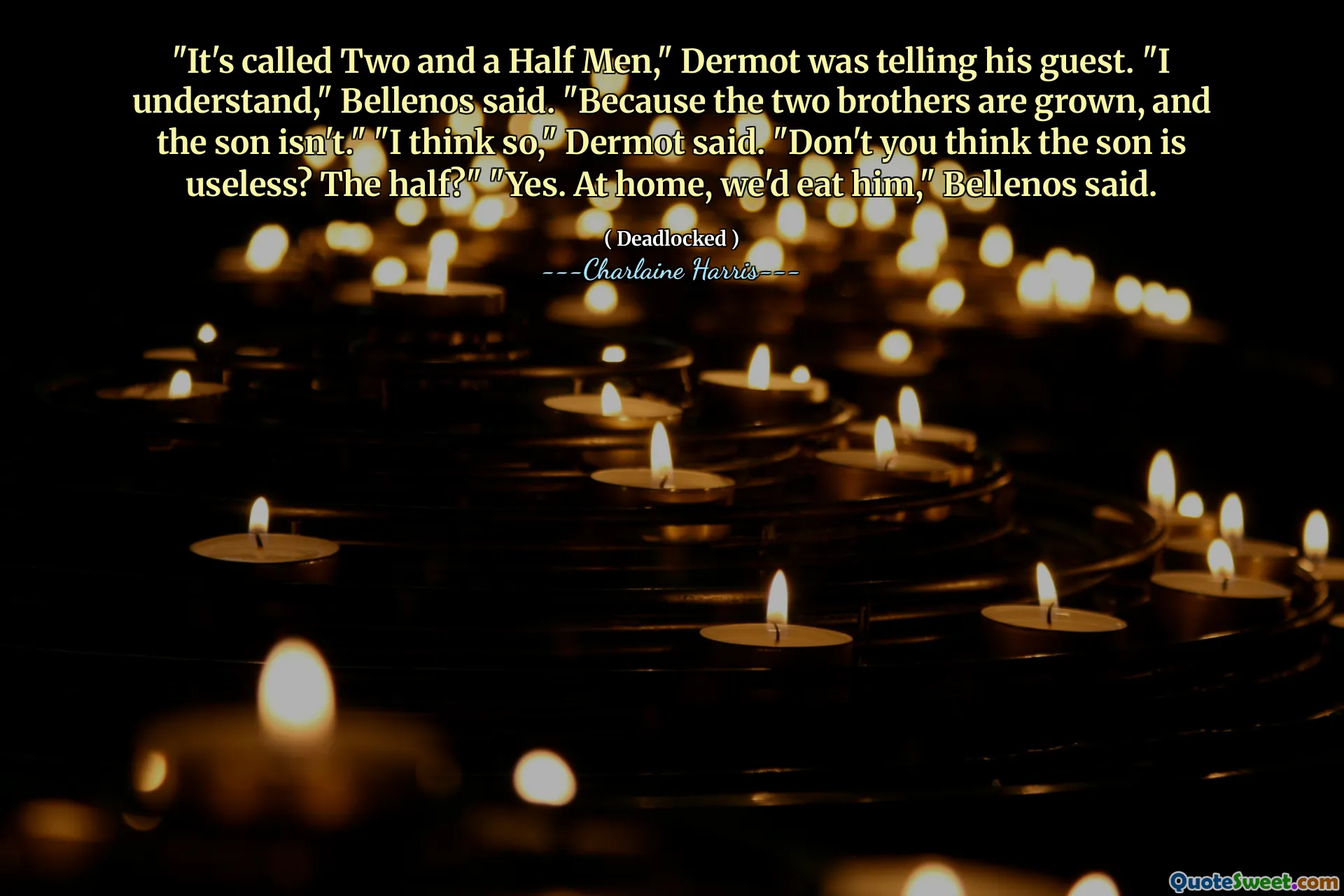
"It's called Two and a Half Men," Dermot was telling his guest. "I understand," Bellenos said. "Because the two brothers are grown, and the son isn't." "I think so," Dermot said. "Don't you think the son is useless? The half?" "Yes. At home, we'd eat him," Bellenos said.
This quote presents an intriguing and somewhat darkly humorous perspective on family dynamics, cleverly tying together the symbolic title of the popular show "Two and a Half Men" with a literal and somewhat macabre interpretation. The conversation between Dermot and Bellenos reveals a nuanced observation on the division of maturity and usefulness within a family unit—the two grown brothers representing completeness or usefulness, contrasted starkly by the son, seen as a "half" because he is still immature or incomplete. This perspective brings to light a critical, almost cynical view of societal expectations around maturity and productivity within family roles.
Furthermore, the stark statement "At home, we'd eat him" offers a jarring metaphor about how the less productive or immature member of a family—or society—can be marginalized or consumed figuratively by more dominant figures around them. It might hint at how familial or societal pressures can consume or stifle growth, offering a commentary on the harsh realities of familial relationships. This juxtaposition of a light-hearted title with a grim metaphor forces the reader to reflect deeply on the underlying themes of familial roles, expectations, and the sometimes-necessary harshness involved in these relationships.
This quote, with its clever wordplay and stark metaphor, challenges the reader to reconsider how we define worth and maturity within the concept of family and highlights the sometimes uncomfortable truths about dependency, growth, and the struggle for significance in a household or broader societal context.






